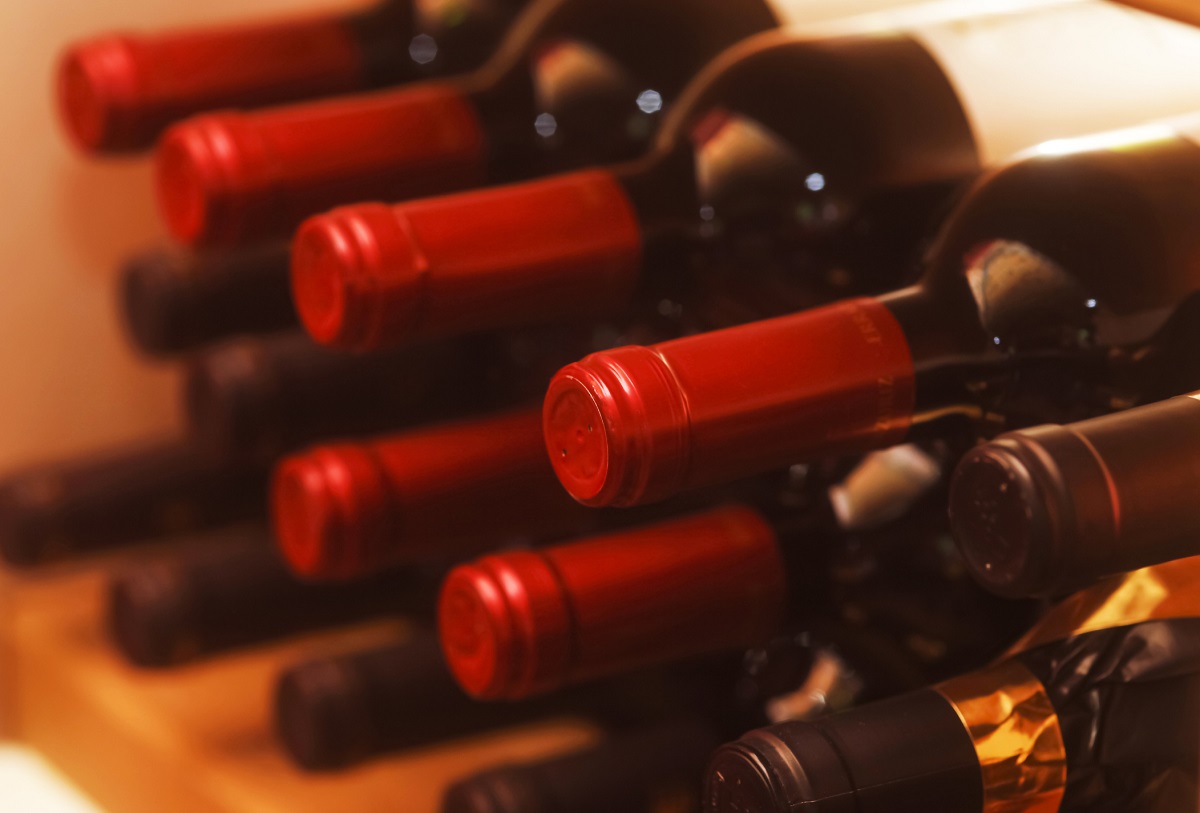

Articles
How To Store Wine Without A Cellar
Modified: October 18, 2024
Discover the best methods for storing wine without a cellar in our informative articles. Learn how to preserve the flavor and quality of your favorite bottles.
(Many of the links in this article redirect to a specific reviewed product. Your purchase of these products through affiliate links helps to generate commission for Storables.com, at no extra cost. Learn more)
Introduction
When it comes to preserving the quality and flavor of wine, proper storage is essential. While many wine enthusiasts dream of owning a cellar, not everyone has that luxury. However, fear not! You don’t necessarily need a traditional wine cellar to store your wine collection. With a little knowledge and creativity, you can find alternative methods to ensure your wines are stored in optimal conditions.
In this article, we will explore various strategies for storing wine without a cellar. Whether you have a small apartment or lack the budget to build a dedicated wine storage space, these tips will guide you in creating a suitable environment for your cherished bottles.
Key Takeaways:
- Wine can be stored without a cellar by understanding ideal conditions, choosing the right location, controlling temperature and humidity, and utilizing wine racks or shelves. These practices ensure wine preservation and enjoyment.
- Minimizing light exposure, avoiding vibrations, and keeping wine away from strong odors are crucial for maintaining the integrity of a wine collection. Investing in a wine cooler or refrigerator can provide precise storage conditions for optimal aging.
Read more: Wine Cellar How To Build
Understand the Ideal Storage Conditions for Wine
Before diving into storing wine without a cellar, it’s crucial to understand the ideal storage conditions for wine. Wine is a delicate and sensitive beverage that can easily be affected by its environment. To ensure its flavor, aroma, and overall quality remain intact, there are a few factors you need to consider:
- Temperature: Wine should be stored at a consistent temperature, ideally between 45°F (7°C) and 65°F (18°C). Fluctuations in temperature can cause the wine to expand and contract, leading to potential damage to the cork and oxidation of the wine.
- Humidity: Wine thrives in a humid environment with a humidity level between 50% and 80%. The right humidity prevents the cork from drying out, which can lead to wine leakage or oxidation. However, excessive humidity can also cause mold or label damage.
- Light: Ultraviolet (UV) rays from direct sunlight or fluorescent lighting can be harmful to wine, causing it to age prematurely. It’s crucial to store wine in a dark or dimly lit area to protect it from light exposure.
- Odors: Wine easily absorbs odors from its surroundings, which can impact its aroma and taste. To maintain the integrity of your wine, avoid storing it in an area with strong-smelling substances, such as cleaning supplies or chemicals.
- Vibrations: Constant vibrations can disturb the sediments in wine, preventing it from aging properly. Avoid storing wine near appliances or areas with excessive movement or vibrations.
By understanding these key factors, you can adapt your wine storage methods to replicate the ideal conditions as closely as possible, even without a cellar.
Choose the Right Location
When it comes to storing wine without a cellar, selecting the right location is crucial. Look for a cool, dark, and undisturbed area in your home that meets the ideal storage conditions we discussed earlier.
An interior closet or a corner in the basement can work well, as long as the area is not directly exposed to sunlight or fluctuations in temperature. Avoid storing wine in areas prone to extreme heat or cold, such as near heating vents or windows.
If you live in a small apartment with limited space, consider utilizing underutilized areas like under the staircase or unused cabinets. These areas can provide a consistent temperature and are often protected from light exposure.
Remember to choose a location where the wine bottles will not be subject to unnecessary movement or vibrations, such as near a washing machine or door that is frequently opened and closed.
In addition to location, consider the positioning of the wine bottles. Keeping the bottles horizontal is crucial to ensure the cork remains moist and airtight. This position also helps prevent oxygen from entering the bottle, which can lead to spoilage and oxidation.
By choosing the right location and positioning your wine bottles correctly, you can create an environment that closely replicates the conditions of a traditional cellar.
Control the Temperature and Humidity Levels
While you may not have a dedicated cellar, you can still exert some control over the temperature and humidity levels in your wine storage area. Here are some tips to help you maintain the ideal conditions:
- Temperature: If your storage area tends to be warmer than the desired range, consider using a portable fan or air conditioning unit to help regulate the temperature. On the other hand, if it tends to be cooler, you can use a small heater or insulation to keep the area from getting too cold.
- Humidity: To maintain the right level of humidity, you can use a hygrometer to monitor the moisture in the air. If the humidity is too low, you can place a small dish of water in the storage area or use a humidifier to increase the moisture. Conversely, if the humidity is too high, use dehumidifiers or moisture absorbers like silica gel packets to reduce excessive moisture.
It’s important to regularly check and adjust the temperature and humidity levels to ensure they remain within the optimal range. Small fluctuations are normal, but try to maintain stability as much as possible to protect the quality of your wines.
If your storage area lacks natural insulation or is susceptible to extreme temperature changes, consider using insulation materials like cork boards or thermal blankets to help regulate the environment.
By controlling the temperature and humidity levels, you can provide a stable and suitable storage environment for your wines, even without a cellar.
Store Wine Bottles Horizontally
One of the most important aspects of wine storage is the position of the bottles. Storing wine bottles horizontally is crucial for several reasons:
- Preventing Cork Drying: Storing wine horizontally ensures that the wine is in contact with the cork, keeping it moist and swollen. This helps to create an airtight seal and prevents the cork from drying out, which could lead to oxidation and spoilage of the wine.
- Minimizing Oxygen Exposure: By storing the bottles horizontally, you minimize the surface area of wine exposed to oxygen. This reduces the risk of oxygen interacting with the wine and causing it to spoil or lose its flavor and aroma.
- Keeping Sediments Settled: Many wines, especially older red wines, develop sediments over time. Storing the bottles horizontally helps keep the sediments settled at the bottom, making it easier to pour the wine without disturbing the sediment.
- Maximizing Storage Space: Storing wine bottles horizontally allows you to maximize your storage space. Instead of stacking the bottles on top of each other, which can put pressure on the corks, you can line them up horizontally on a shelf or in a wine rack.
By storing your wine bottles horizontally, you not only preserve the integrity of the wine but also create an efficient and organized storage system.
If you have limited space, consider investing in wine racks or shelves specifically designed for storing wine bottles horizontally. These racks help keep the bottles secure and make it easier to access and identify different wines in your collection.
Remember to handle the bottles with care when placing them in the storage area or moving them around. Avoid shaking or jostling the bottles, as this can stir up any sediments and potentially impact the wine’s flavor.
Storing wine bottles horizontally is a fundamental practice for any wine storage, whether you have a cellar or not. By adopting this method, you can ensure the longevity and quality of your wine collection.
Read more: How To Organize A Wine Cellar
Minimize Exposure to Light
Light, especially ultraviolet (UV) rays, can have a detrimental effect on wine. Exposure to light can alter the flavor, aroma, and even the color of wine. To protect your wine collection, it’s important to minimize its exposure to light, especially direct sunlight.
Here are a few tips to minimize light exposure:
- Choose a Dark Storage Area: Select a storage location in your home that is naturally dark or has minimal light exposure. Avoid areas near windows or where light fixtures are frequently turned on.
- Use Light-Blocking Curtains or Blinds: If your storage area has windows, consider using light-blocking curtains or blinds to prevent sunlight from entering the space. This helps create a dark and controlled environment for your wine bottles.
- Avoid Fluorescent Lighting: If you have lighting in your storage area, avoid using fluorescent bulbs. These bulbs emit UV rays that can be harmful to wine. Instead, opt for low-intensity incandescent or LED lighting, if necessary.
- Wrap Bottles in UV-Resistant Sleeves: For added protection, you can wrap your wine bottles in UV-resistant sleeves or covers. These sleeves act as a barrier, preventing UV light from reaching the bottles while still allowing you to easily identify the wines.
By minimizing exposure to light, you can preserve the delicate flavors, aromas, and color of your wines. The dark and controlled environment will ensure that your wines age properly and maintain their intended characteristics.
Remember to be mindful of any light sources near your storage area and take necessary precautions to shield your wines from their potential harm. By doing so, you can enjoy your wines at their best when the time comes to uncork and savor them.
Store wine in a cool, dark place away from direct sunlight and temperature fluctuations. Aim for a consistent temperature around 55°F (13°C) and humidity of 60-70%. Keep bottles on their side to keep the cork moist.
Avoid Vibrations
Vibrations can have a negative impact on the quality and aging process of wine. Constant movement or disturbance can disturb the sediments in the wine, affecting its clarity and taste. To protect your wine collection, it’s important to avoid storing your bottles in areas with excessive vibrations.
Here are a few tips to minimize vibrations:
- Choose a Stable Location: Select a storage area that is stable and free from constant movement or vibrations. Avoid areas near appliances that generate vibrations, such as washing machines, dryers, or refrigeration units.
- Avoid High-Traffic Areas: Store your wine bottles away from high-traffic areas where there is a lot of foot traffic or frequent movement. This reduces the risk of accidentally bumping or jostling the bottles.
- Protect from Floor Vibrations: If your storage area is on a level that experiences vibrations, such as near a busy road or on the bottom floor of a building, place a rubber mat or insulation material under your wine racks or shelves. This helps absorb vibrations and provides additional protection to the bottles.
- Handle Bottles with Care: When moving or handling wine bottles, do so gently and with care. Avoid shaking or agitating the bottles, as this can disturb the sediments and impact the overall quality of the wine.
By minimizing vibrations, you allow your wine to age gracefully and undisturbed. The sediments can settle peacefully, and the flavors and aromas can develop naturally over time.
It’s important to create a calm and stable environment for your wine collection, free from unnecessary movements or disturbances. By doing so, you’ll ensure that your wines are stored in an optimal condition and can be enjoyed to their fullest potential when the time comes to open them.
Keep Wine Away from Strong Odors
Wine is highly susceptible to odors from its surroundings, which can impact its taste and aroma. To preserve the integrity of your wine collection, it’s crucial to store it away from strong odors.
Here are a few tips to keep wine away from strong odors:
- Select a Dedicated Storage Area: Choose a storage location that is away from areas where strong odors are present, such as kitchens, laundry rooms, or garages. These areas often contain chemicals, cleaning agents, or strong-smelling foods that can permeate the wine bottles.
- Avoid Storing with Strong-Smelling Substances: Store your wine bottles away from strong-smelling substances or products. This includes cleaning supplies, paints, solvents, or any other items that emit strong odors.
- Separate Wine from Food Storage: If you have a pantry or cabinet where you store food, make sure to keep your wine bottles separate. Food items, especially pungent ones like onions, garlic, or cheese, can emit odors that can seep into the wine bottles.
- Consider Wine Closets or Cabinets: If you have a larger collection and are concerned about potential odors, consider investing in a dedicated wine closet or cabinet with built-in odor control features. These specialized storage solutions help create a controlled environment and minimize the risk of odor contamination.
By keeping your wine away from strong odors, you ensure that the flavors, aromas, and characteristics of your wines remain pure and untainted. This allows you to fully appreciate the nuances and complexities of each bottle when you open them.
Remember to handle the bottles with care and avoid exposing them to any strong-smelling substances during transportation or when placing them in the storage area. By doing so, you can safeguard the quality of your wine collection and ensure a delightful tasting experience every time.
Use Wine Racks or Shelves for Storage
When it comes to storing wine without a cellar, utilizing wine racks or shelves is a practical and efficient solution. Wine racks and shelves not only provide a designated space to store your bottles but also offer several benefits for preserving your wine collection:
Organized Storage: Wine racks and shelves provide an organized and visually appealing way to display and store your bottles. They allow you to see your collection at a glance and make it easier to locate specific wines when desired.
Proper Bottle Positioning: Wine racks and shelves are designed to hold wine bottles horizontally, which is essential for keeping the corks moist and maintaining an airtight seal. This horizontal positioning helps prevent oxygen from entering the bottles and minimizes the risk of cork drying out.
Stability and Protection: Wine racks and shelves provide a stable environment for your wine bottles. They offer secure storage, minimizing the risk of accidental falls or damage to the bottles. Some racks also have individual slots or dividers that separate each bottle, further protecting them from potential knocks or vibrations.
Easy Accessibility: With wine racks or shelves, you can easily access your collection without disturbing other bottles. The convenient layout and design of these storage options make it simple to retrieve a desired bottle for a special occasion or spontaneous celebration.
There are a variety of wine racks and shelves available, ranging from freestanding units to wall-mounted or built-in options. Choose one that suits your space constraints, aesthetic preferences, and the size of your wine collection. Consider the material of the racks or shelves as well, as certain materials like wood or metal can help regulate temperature and provide insulation for your wine bottles.
As you place your wine bottles in the racks or shelves, be mindful of arranging them in a way that allows for proper air circulation. Avoid overcrowding the bottles, as this can restrict airflow and potentially impact the aging process of the wine.
By utilizing wine racks or shelves for storage, you not only create an organized and secure space for your wine collection but also enhance its preservation and presentation. Cheers to a well-organized and enjoyable wine storage experience!
Read more: How To Build A Wine Cellar In Basement
Consider Investing in a Wine Cooler or Refrigerator
If you are serious about storing and preserving your wine collection without a cellar, investing in a wine cooler or refrigerator is a wise choice. These specialized appliances are designed to provide optimal storage conditions for wine, ensuring that your bottles are kept at the ideal temperature and humidity levels.
Here are some reasons why you should consider investing in a wine cooler or refrigerator:
- Precise Temperature Control: Wine coolers and refrigerators offer precise temperature control, allowing you to set and maintain the desired temperature for your wines. This ensures that your wines are stored at the perfect temperature for aging and preserving their flavors and aromas.
- Dual Temperature Zones: Many wine coolers and refrigerators come with dual temperature zones, allowing you to store different types of wines at their respective recommended temperatures. This is especially beneficial if you have a collection that includes both red and white wines.
- Consistent Humidity: Wine coolers and refrigerators also help maintain consistent humidity levels, which is crucial for preventing cork drying and maintaining the integrity of the wine. You can rest assured that your bottles are stored in the ideal humidity range for optimal aging.
- Protection from External Factors: Wine coolers and refrigerators provide a dedicated and controlled storage environment, protecting your wines from external factors such as light, vibrations, and strong odors. They create a secure and stable space specifically designed to preserve the quality of your wine collection.
- Expandable Storage Capacity: Depending on the size of your collection, you can choose a wine cooler or refrigerator with a varying number of shelves and storage capacity. This allows you to expand your storage as your collection grows.
When selecting a wine cooler or refrigerator, consider the size and space requirements, as well as additional features such as UV-resistant glass doors, adjustable shelving, and humidity control mechanisms. It’s important to choose a reputable brand and model that is known for its reliability and quality.
While a wine cooler or refrigerator may require an initial investment, it offers long-term benefits by providing the optimal storage conditions for your wine collection. It ensures that each bottle is kept in prime condition, ready to be enjoyed whenever the occasion calls for it.
Whether you are a casual wine enthusiast or a serious collector, a wine cooler or refrigerator can be a valuable addition to your storage options, helping you maintain the quality and integrity of your wines without the need for a cellar.
Conclusion
Storing wine without a cellar is entirely possible with a little knowledge and creativity. By understanding the ideal storage conditions for wine and implementing the right strategies, you can create an environment that preserves the flavor, aroma, and overall quality of your wine collection.
Choosing the right location, controlling the temperature and humidity levels, and storing the bottles horizontally are essential practices to maintain the integrity of your wine. Minimizing exposure to light, avoiding vibrations, and keeping the wine away from strong odors further protect the delicate nature of the wine.
Utilizing wine racks or shelves helps organize your collection while ensuring proper positioning of the bottles, and investing in a wine cooler or refrigerator provides precise temperature and humidity control.
Remember, wine is an investment of both time and money, and proper storage plays a vital role in its appreciation. With these tips and techniques, you can confidently store your wine collection even without a traditional cellar.
Whether you have a small apartment or limited space, by implementing these practices, you can create a suitable environment for your wine to age gracefully and be enjoyed at its best when the time comes.
So go ahead, explore and implement these strategies, and raise a glass to successful wine storage without a cellar! Cheers!
Frequently Asked Questions about How To Store Wine Without A Cellar
Was this page helpful?
At Storables.com, we guarantee accurate and reliable information. Our content, validated by Expert Board Contributors, is crafted following stringent Editorial Policies. We're committed to providing you with well-researched, expert-backed insights for all your informational needs.
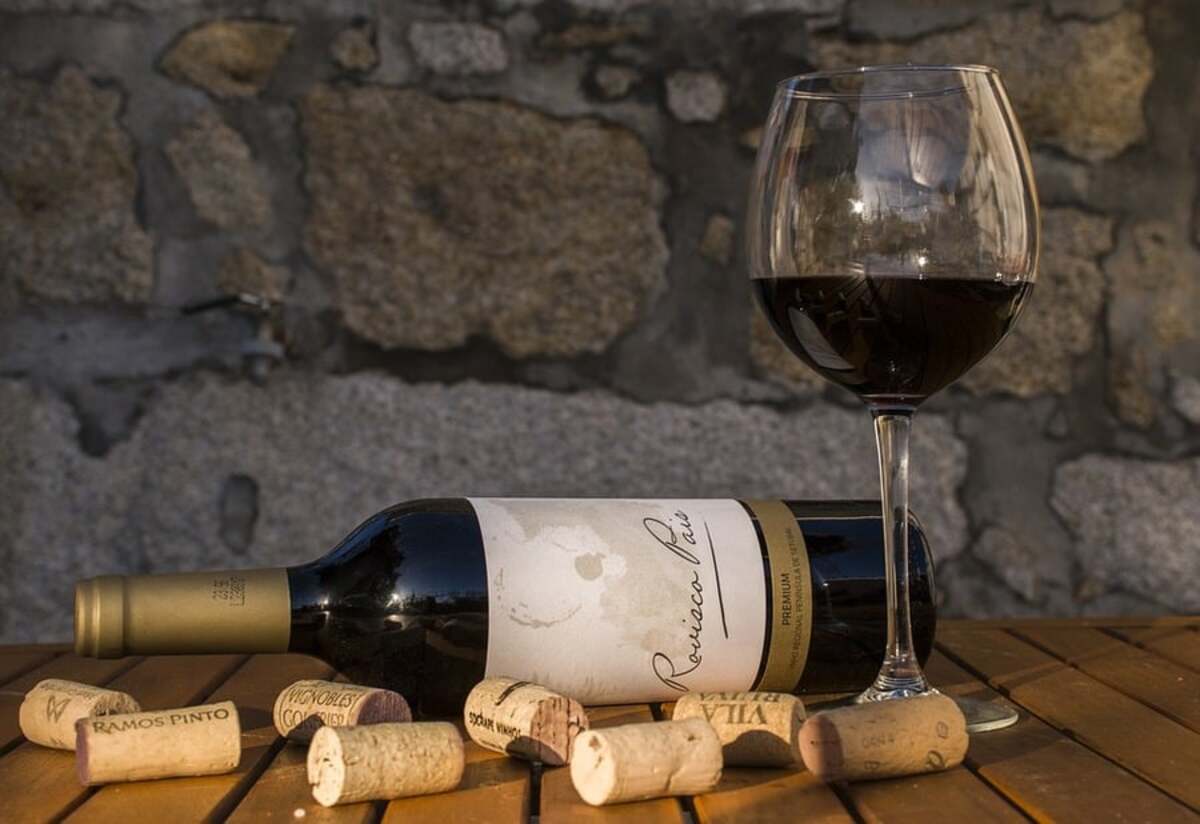
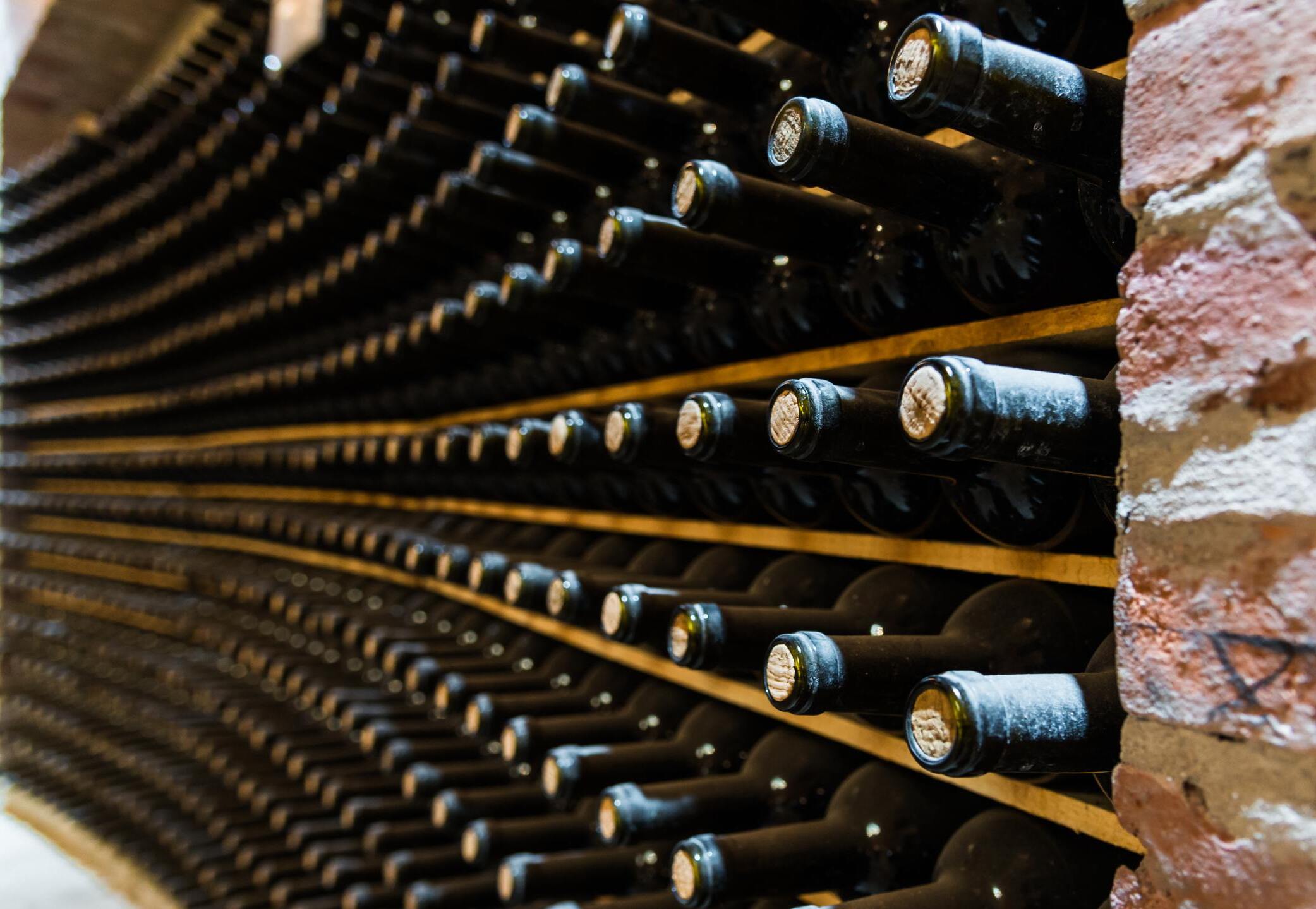
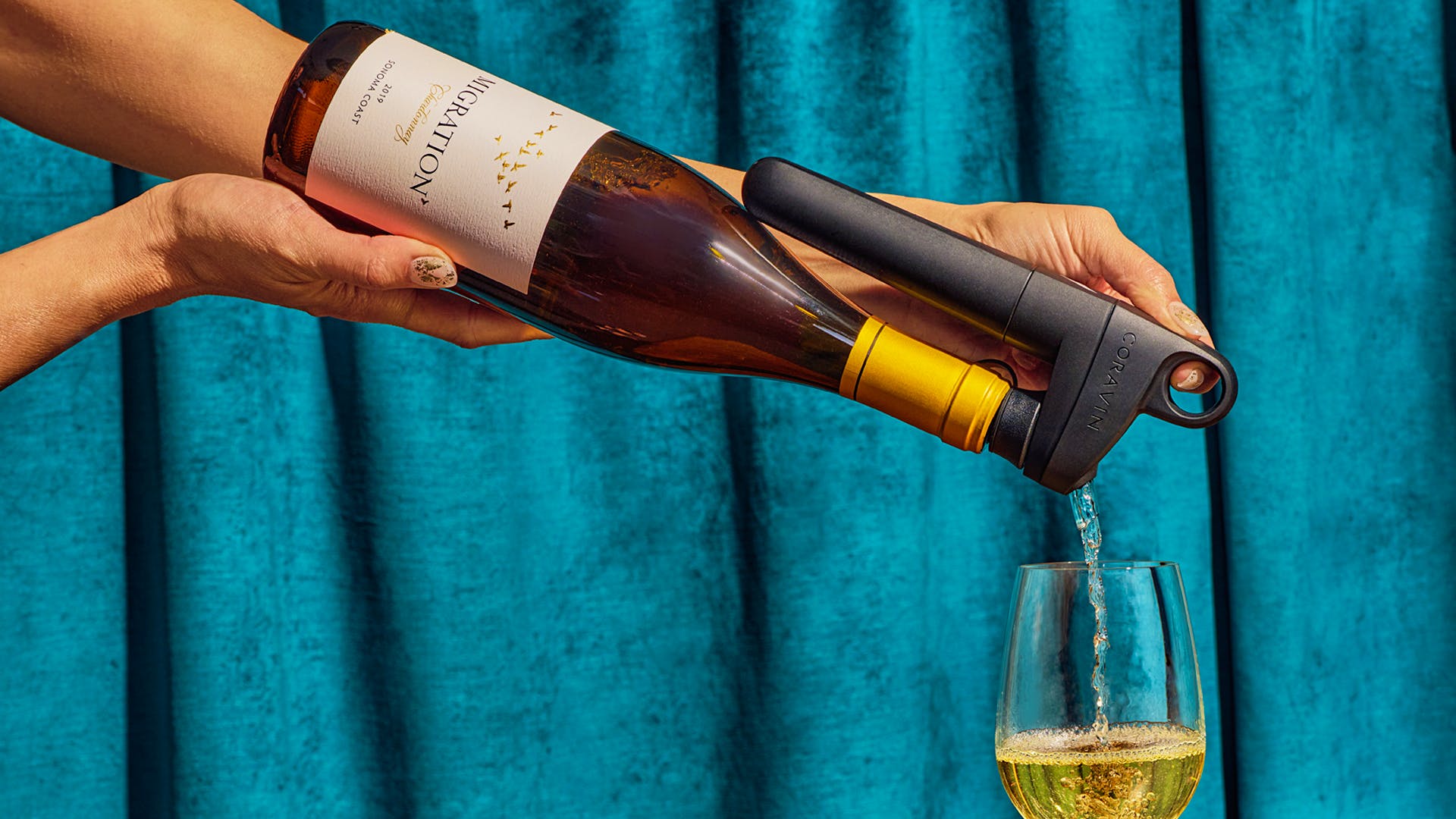
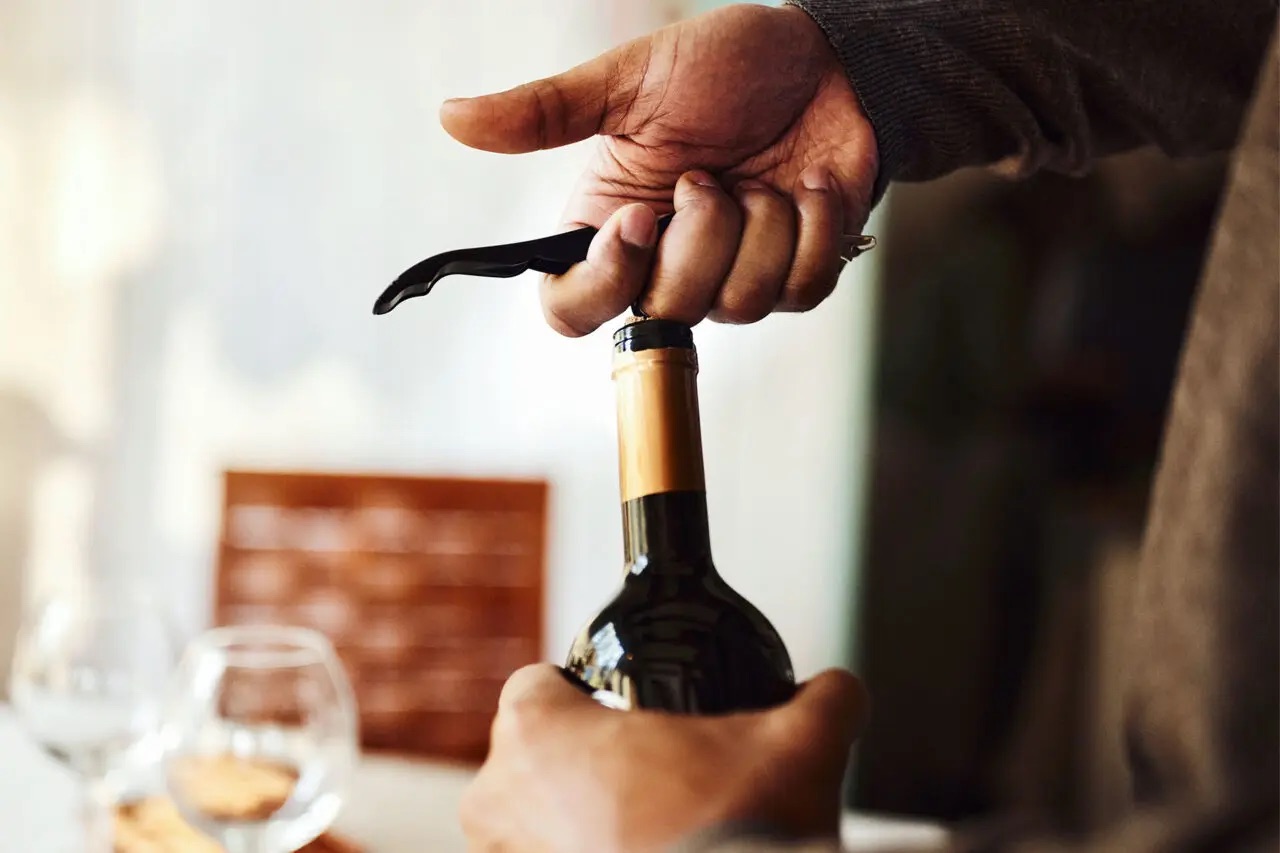
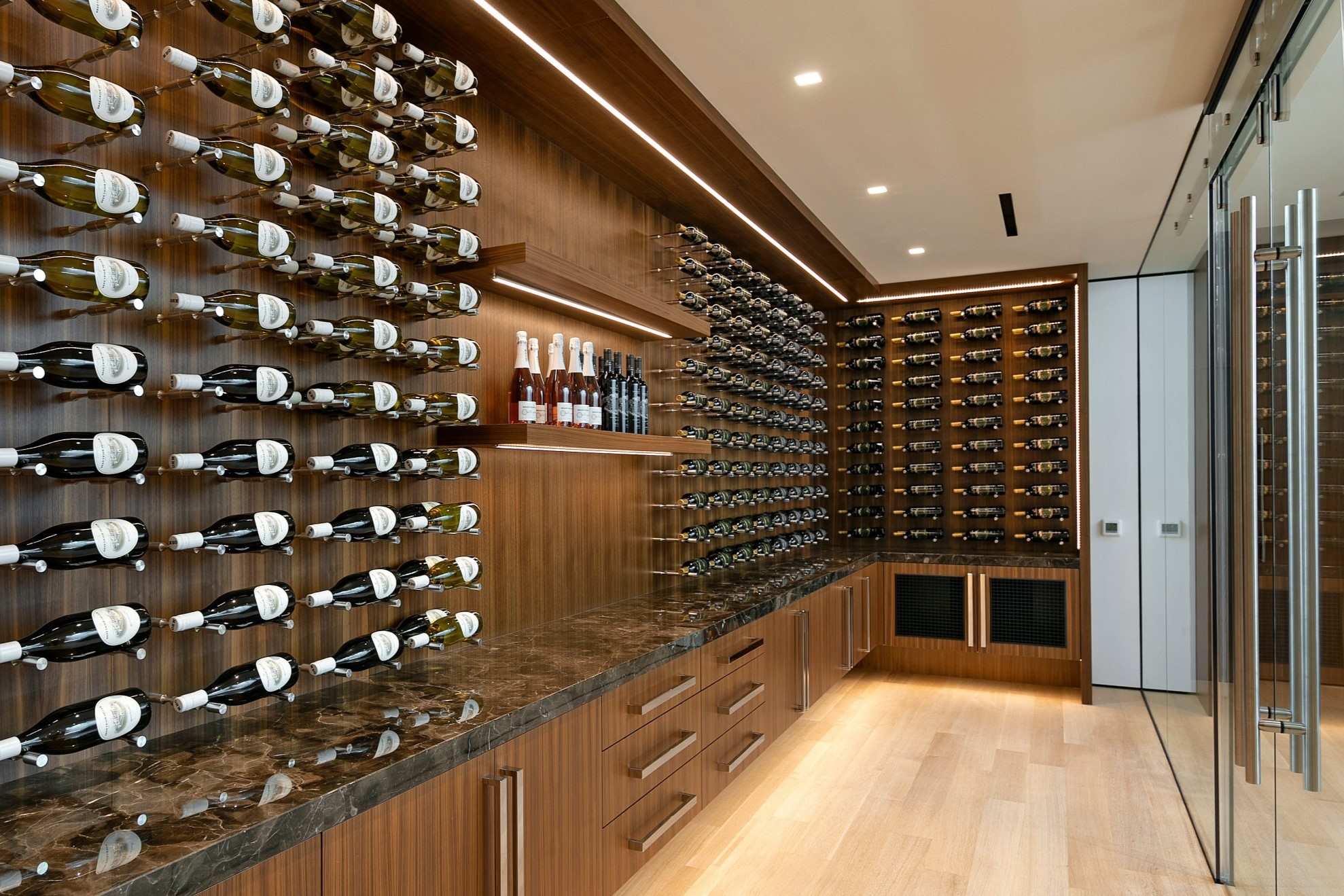
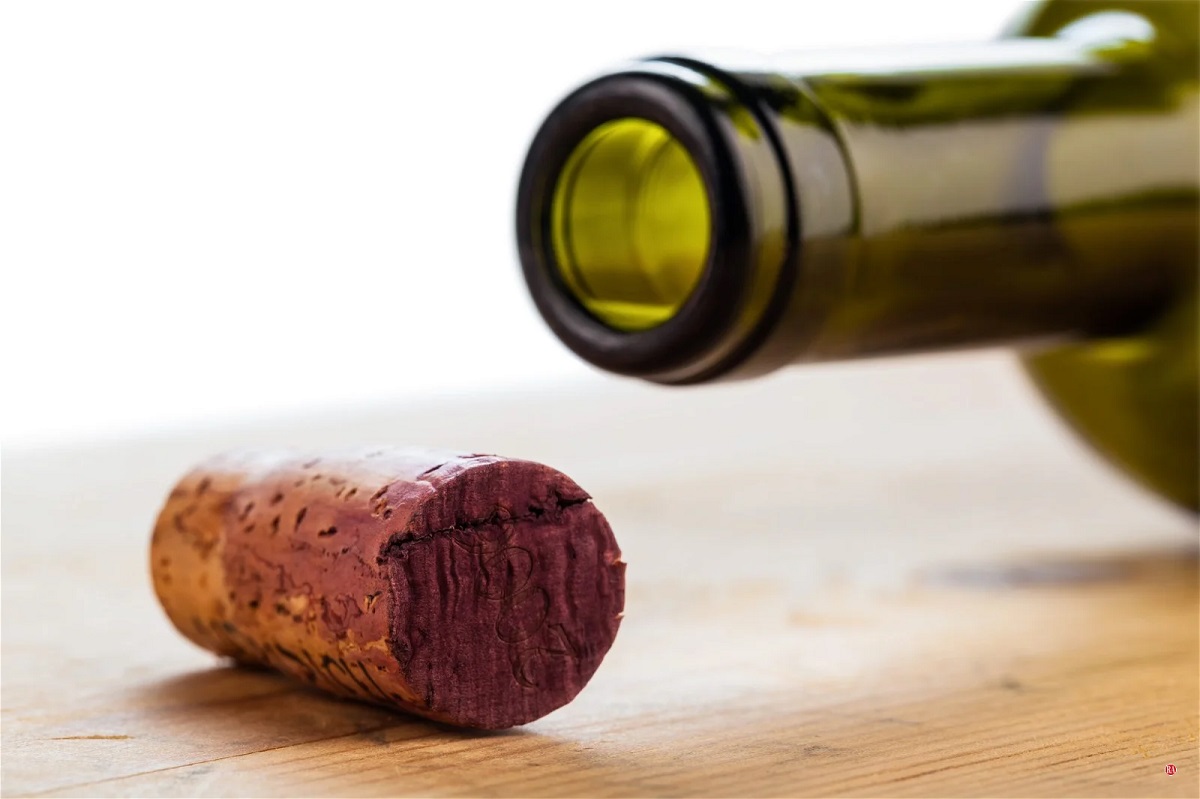
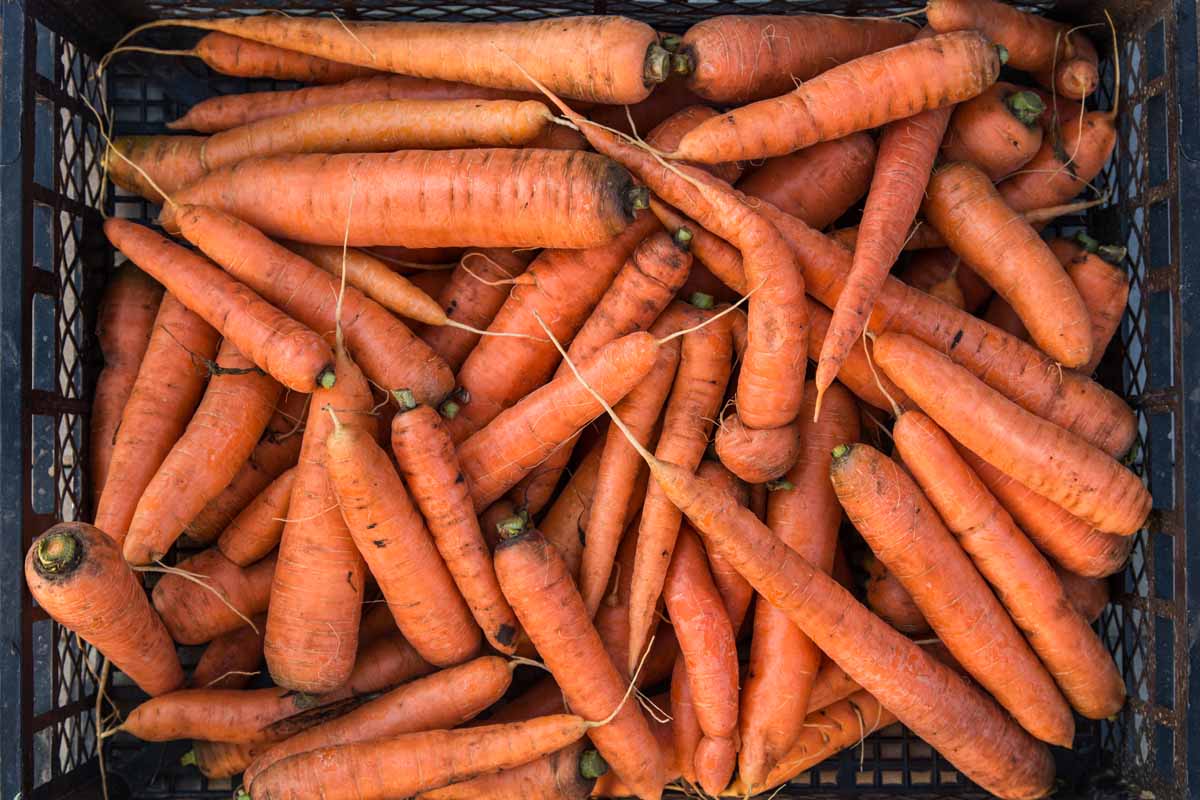
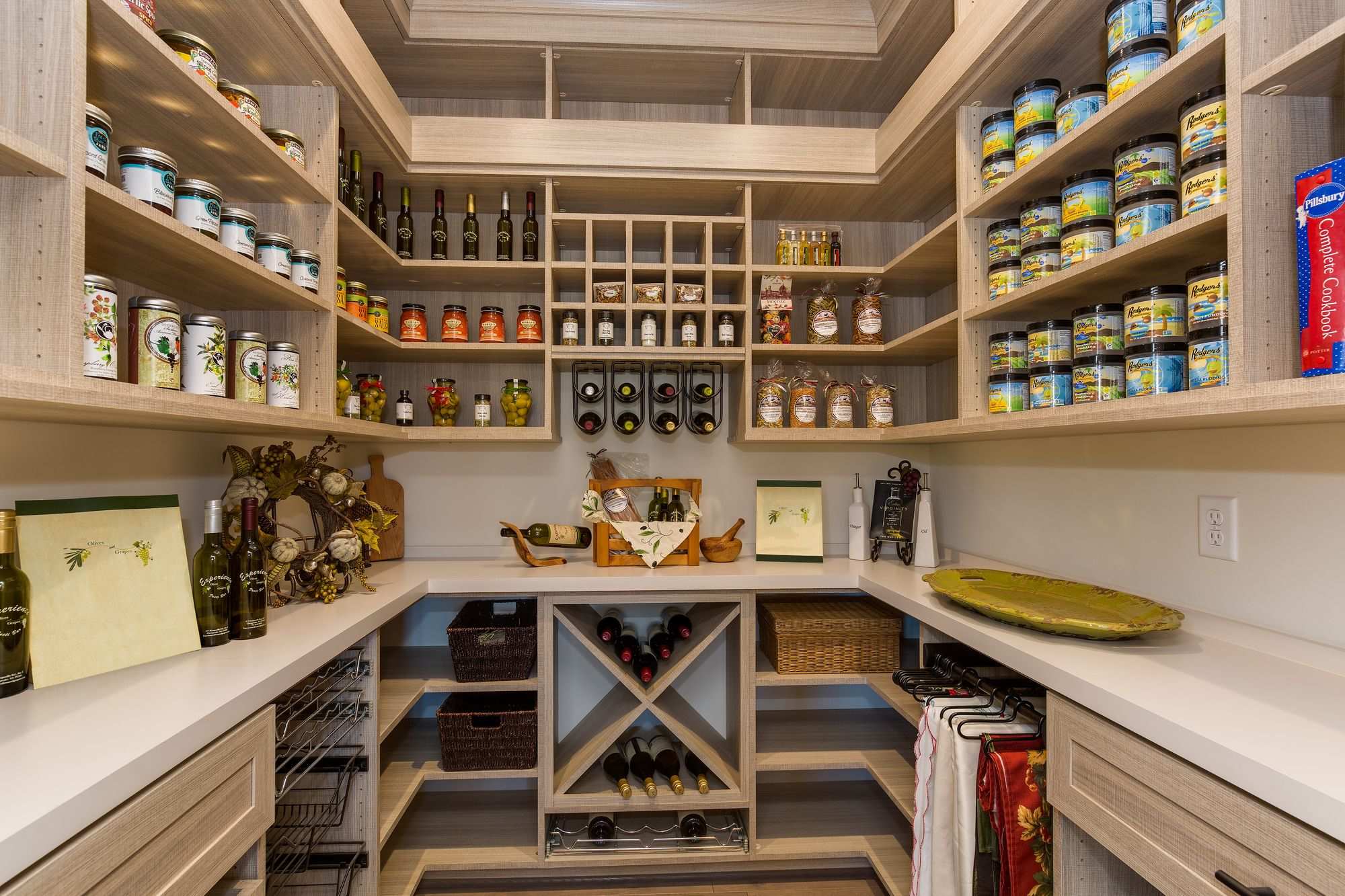
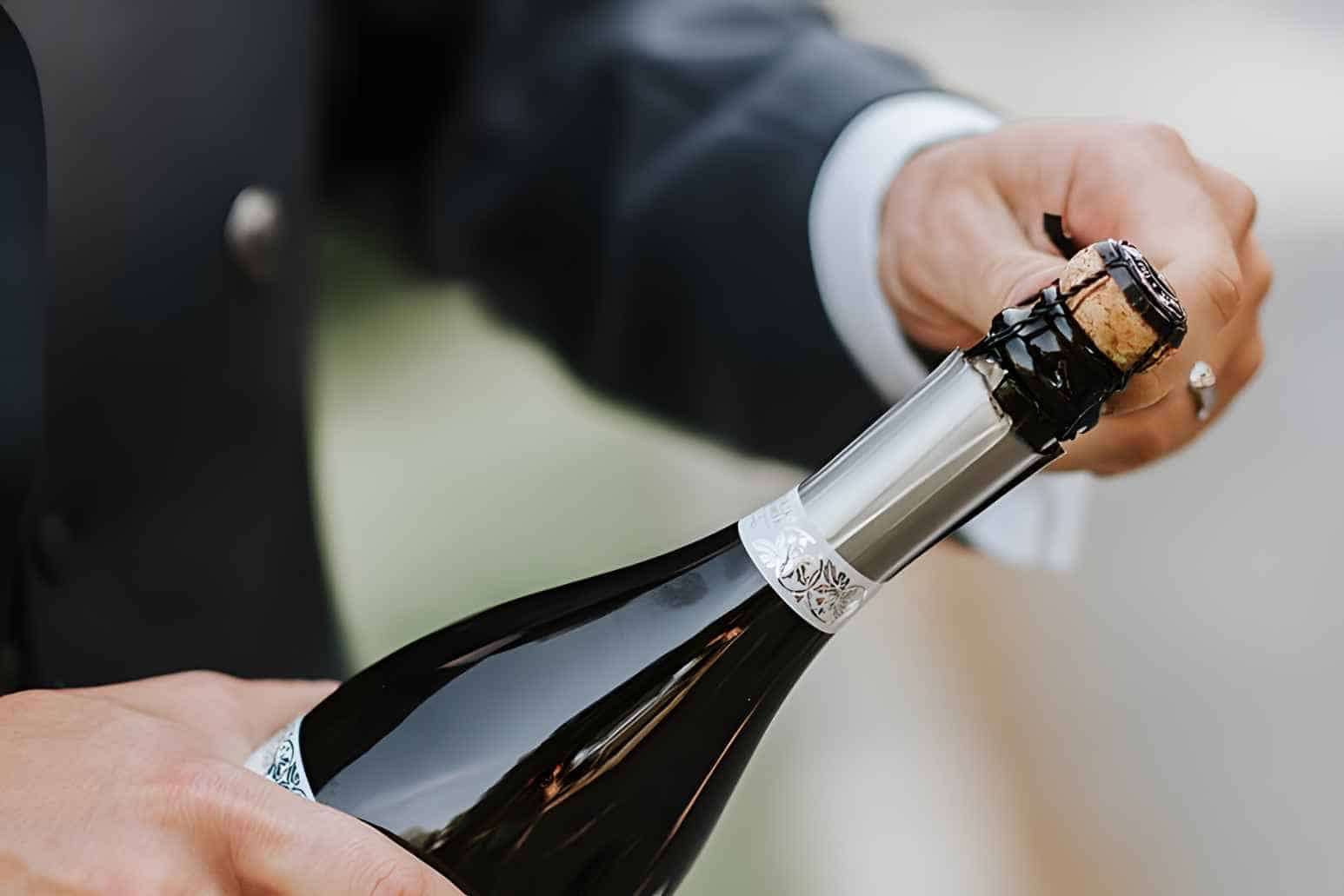
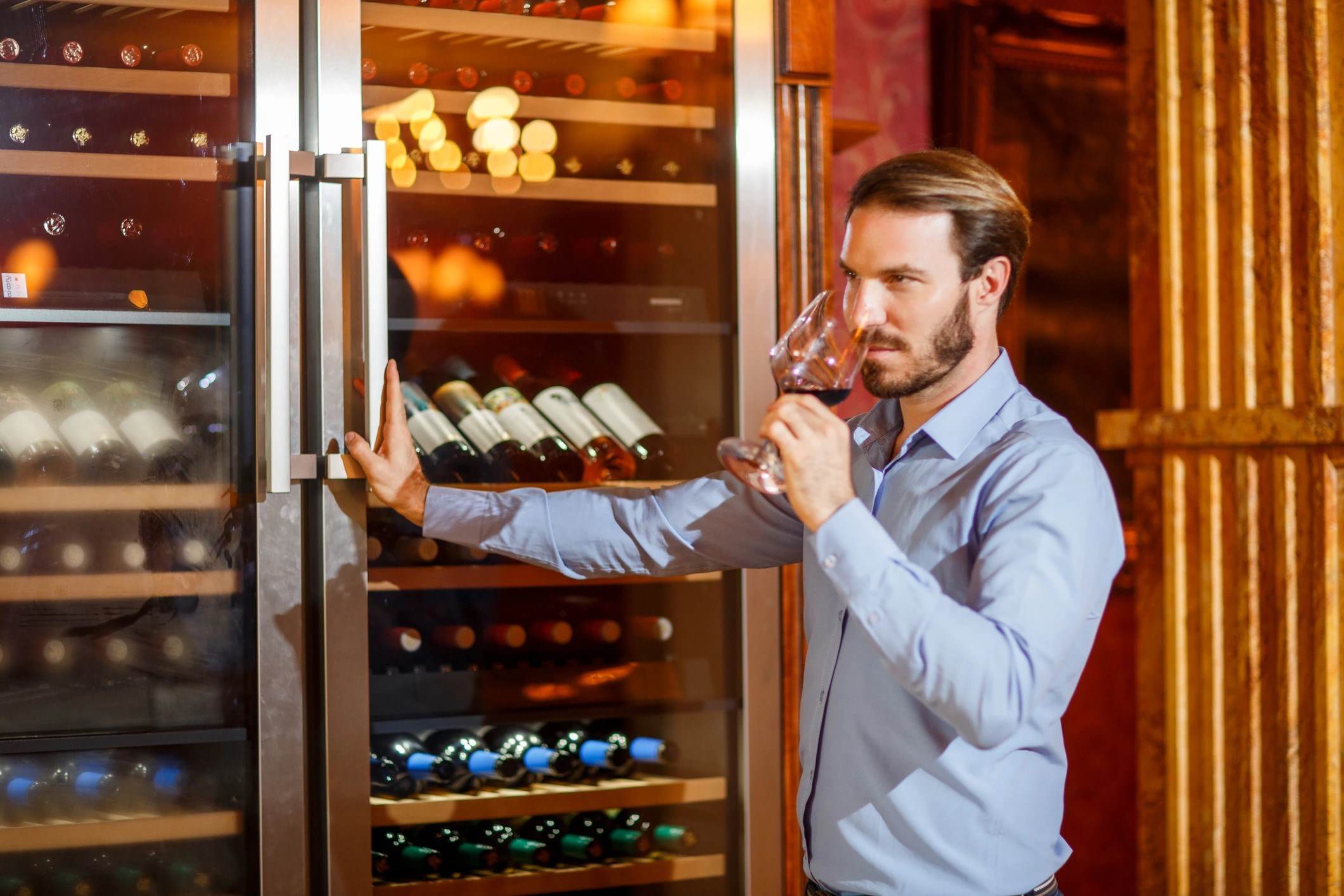
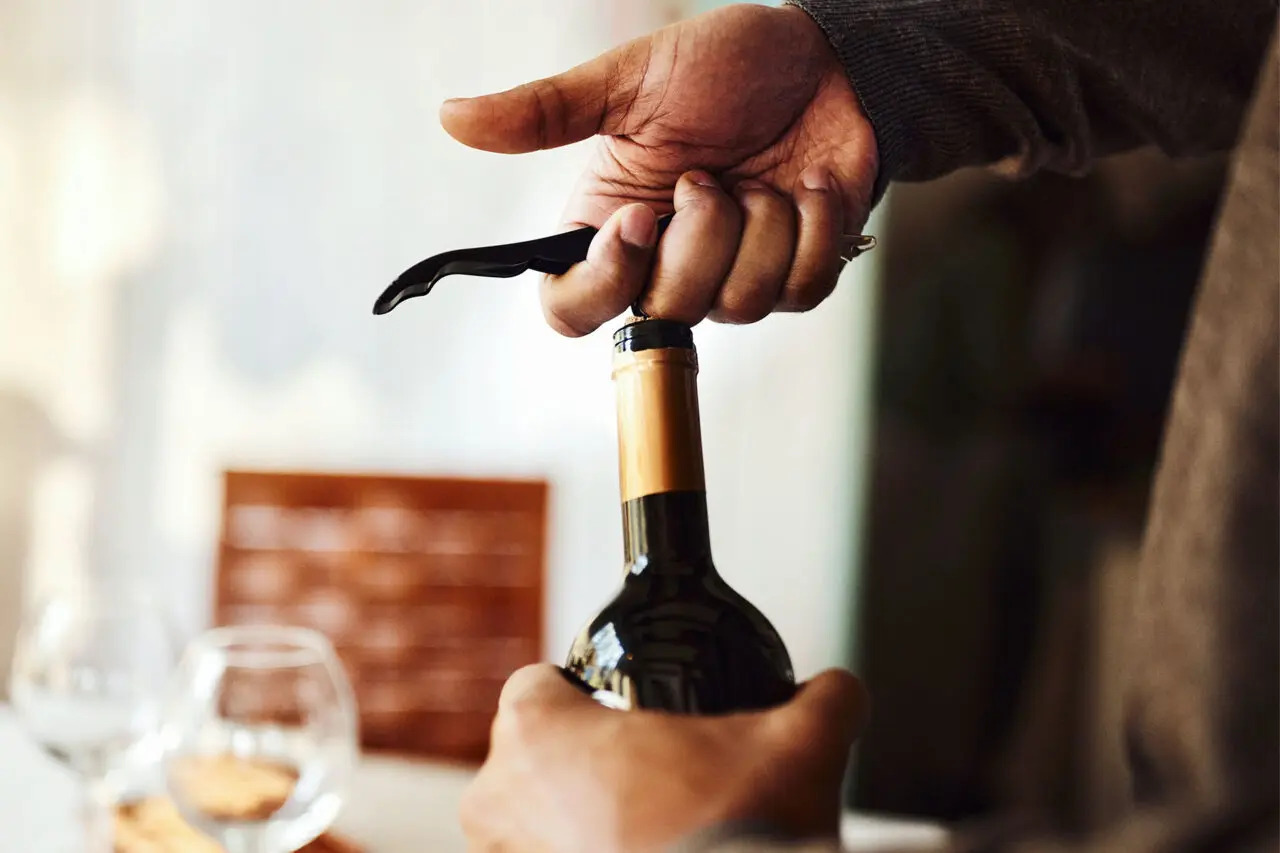
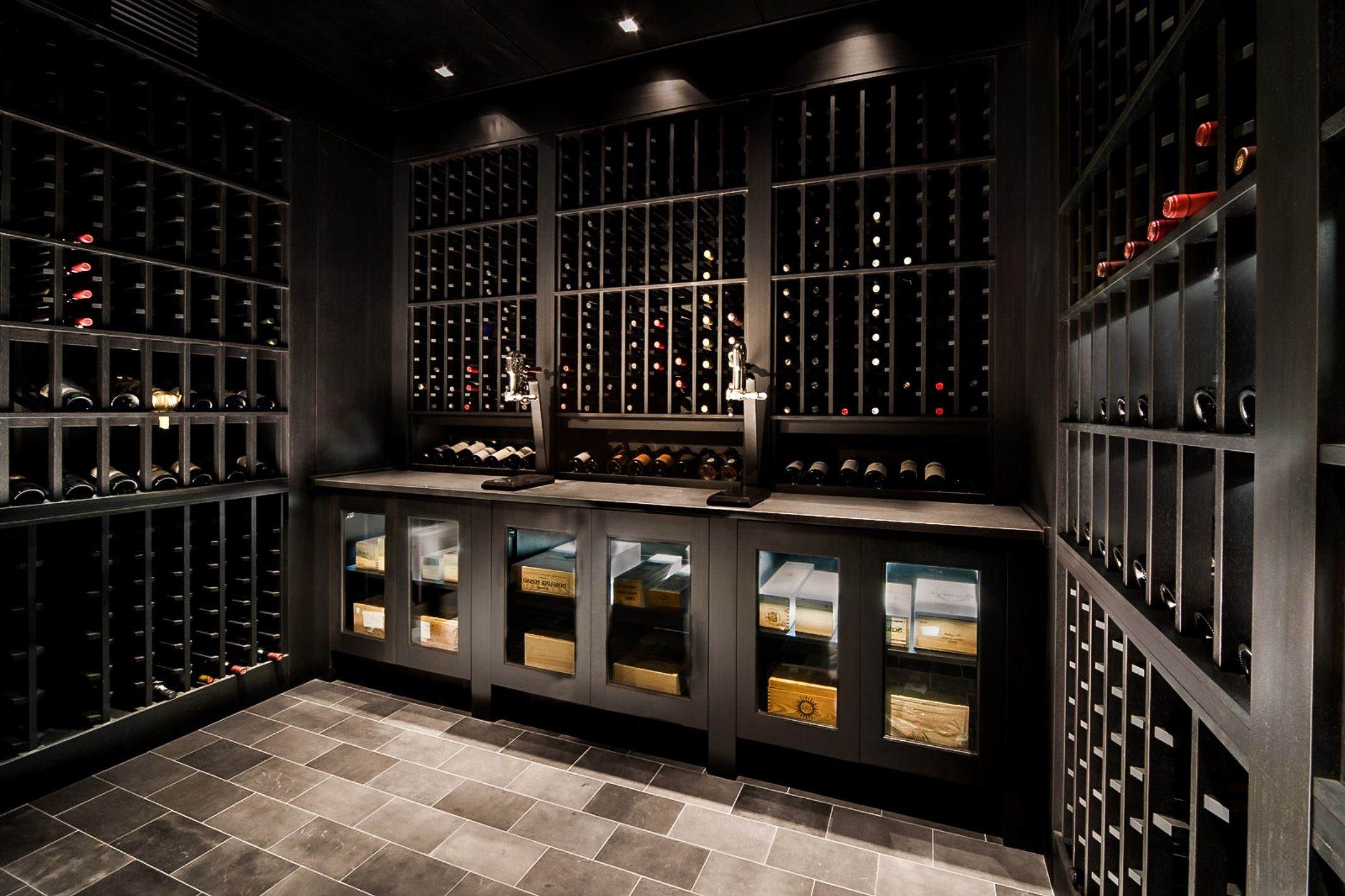
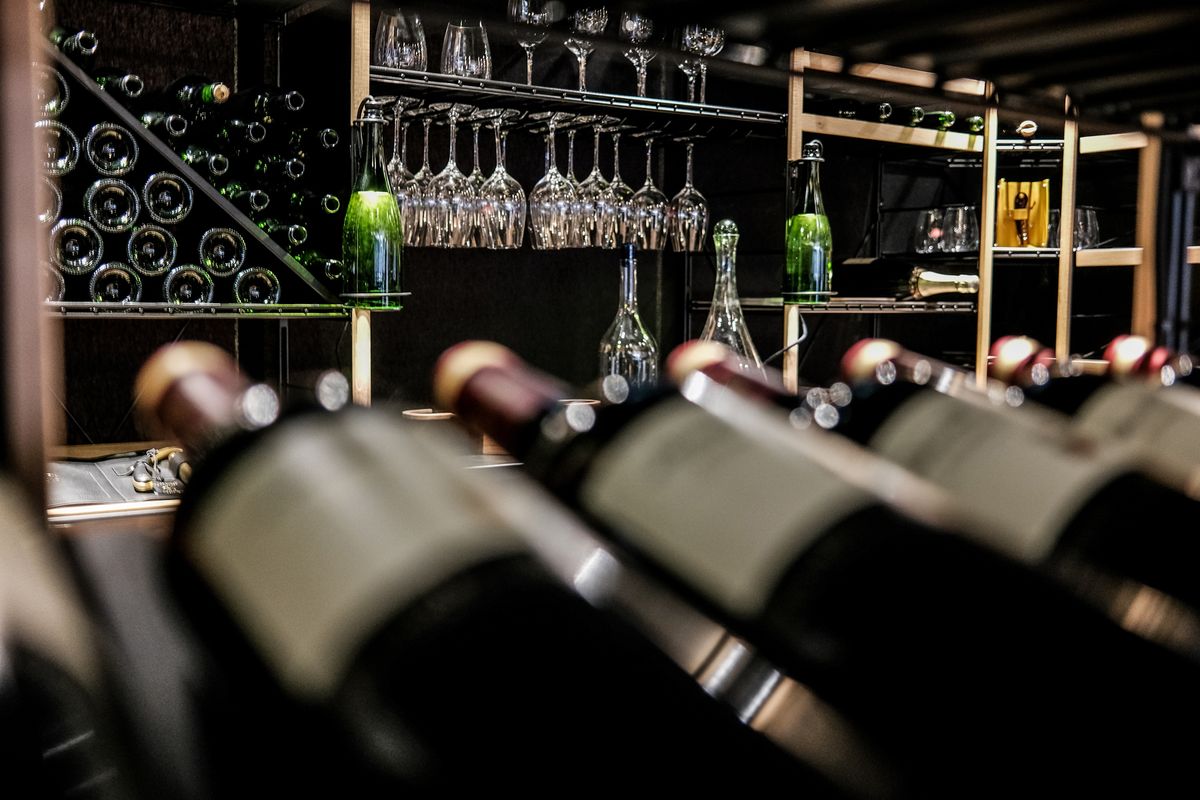

0 thoughts on “How To Store Wine Without A Cellar”